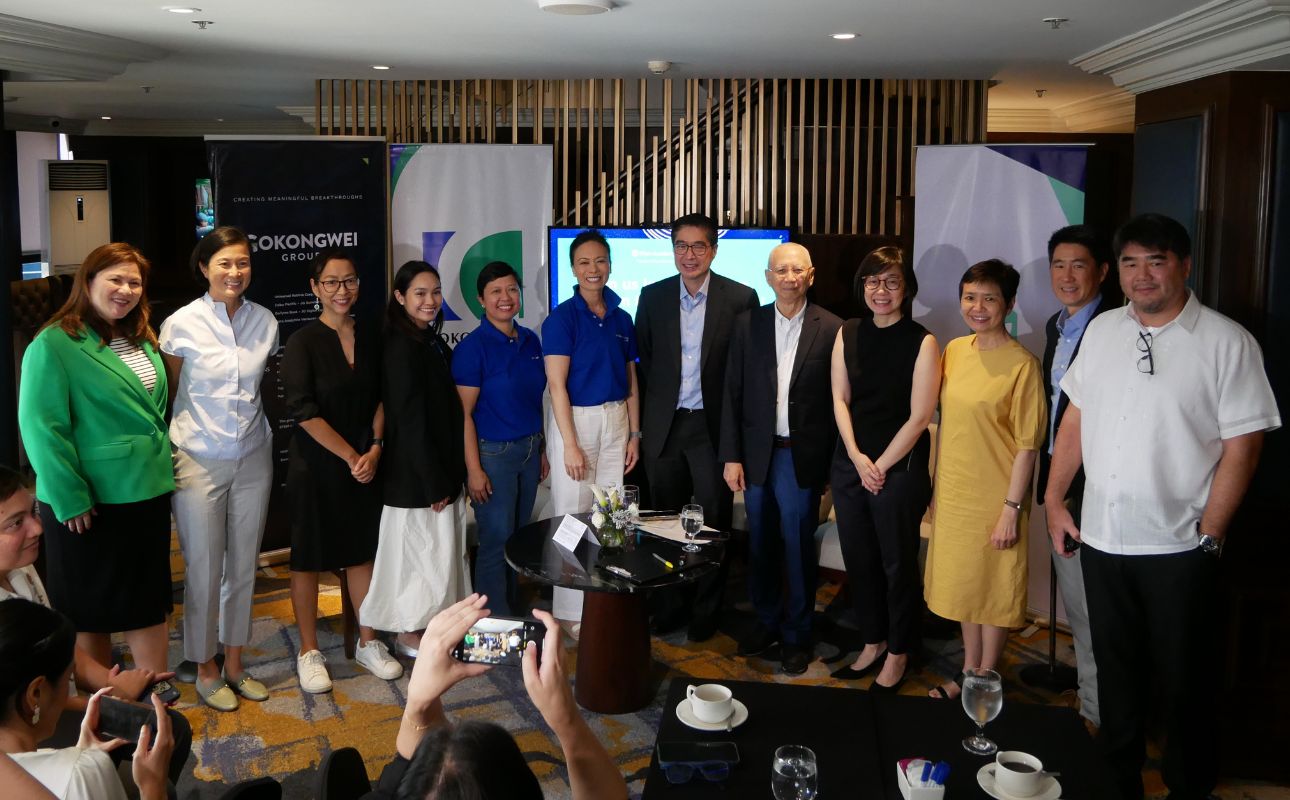A partnership between an online learning platform and a private education foundation is set to bolster an existing initiative that has made digital learning and modern teaching methods more accessible to Filipino learners, paving the way for an increase in the number of “classrooms of the future” in the country.
Khan Academy Philippines, the first international franchisee of the world-famous online learning platform; and the Gokongwei Brothers Foundation (GBF), the country’s largest private sector provider of sci-tech, engineering and math (STEM) scholarships, have joined forces to embark on a shared mission of democratizing digital learning and making educational technology (EdTech) more accessible to learners and educators.
The collaboration, in essence, will allow for more funding and resources from the GBF which shall enable Khan Philippines to operate on a larger scale, expand its network, and reach more partner schools all over the country.
“It is so important to reach the regions because we are all Filipinos, we cannot leave anyone behind. We have to bring all our learners along with us, and go into the future together. Hindi lang puwedeng NCR lang. That’s why we go all over the Philippines to whoever wants to avail of this,” Khan PH CEO Geraldine Acuña-Sunshine told GMA Regional TV News.
“CLASSROOMS OF THE FUTURE”
During the partnership launch on July 3, Acuña-Sunshine talked about the pressing issue of educational incompetence in the Philippines– most recently reflected in the country’s dismal performance in the latest report of the Programme for International Student Assessment (PISA).
Like Khan Academy, its parent network, Khan PH operates as an education technology platform whose primary focus is to address such key issues and bridge the learning gaps by providing virtual lessons across different subject areas for free.
One reason why Khan Ph believes in the strength of their work is their overarching aim to further “localize its content,” as well as to “align lessons with the Department of Education’s curriculum” through the help of local educators.
Coming off a successful opening salvo in 2023, the organization wants to involve more schools in the regions, and have more DepEd-aligned courses in Mathematics.
They are also looking at the possibility of integrating artificial intelligence-assisted tools into the curricula of their partner institutions. Particularly, they aim to introduce Khanmigo, the academy’s AI assistant, in order to supplement classroom learning.
According to the partnership’s vision, the classroom of the future is bold in approach, as it actively engages students, parents, and teachers within an ecosystem that is more globally competitive and digital savvy.
It shies away from a one-size-fits-all approach, and instead prioritizes the pedagogical nuances of each region, of each institition, and each learner and educator, while putting a premium on alternative learning styles and teaching methods.
EXISTING INITIATIVES
Khan Academy Ph was launched in August 2023 through 34 partner institutions: 30 public schools and four private schools. 29 of them are located in the National Capital Region, while five schools based in Dumaguete City, Negros Oriental were chosen for the initiative’s opening salvo.
These institutions were given access to the virtual platforms and databases of Khan Academy. The objective was to integrate a virtual classroom-style pedagogy using Khan’s wealth of academic resources.
The inaugural batch primarily focused on Mathematics. Math educators were onboarded through training sessions on how to use the platform, and were provided with teaching strategies that are more appropriate to modern and differentiated learning.
According to the organization’s data, a total of 71 Math teachers, 3,250 students, and 600 parents participated in the program.
In March 2024, Filipino-American rapper Apl.de.Ap, in partnership with Khan Academy Philippines and another private organization, spearheaded the digital transformation of Sapang Bato National High School in Pampanga.
The initiative included upskilling programs, and gave out monetary pledges as well as donations of laptops.





